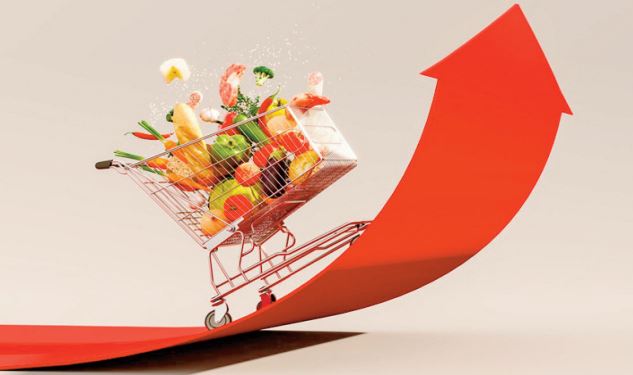The prospects for the global economy do not bode well for Moroccan consumers. In fact, we should not expect a drop in prices or a drop in inflation in the near future. “Global commodity prices are stabilizing after a sharp decline and the outbreak of a major conflict in the Middle East could put an end to the disinflation that has occurred over the past two years,” said a recent World Bank (WB) report. Stagnation According to the mentioned report, “global commodity prices will fall by 3% in 2024 and 4% in 2025.
This rate of decline will have little impact on reducing inflation, which remains above central bank targets in most countries. Commodity prices will therefore remain around 38% higher than on average in the five years prior to the pandemic. Indermit Gill, chief economist and senior vice president of the World Bank Group, believes that “global inflation remains unbeatable,” while adding that “the fall in commodity prices, one of the main drivers of falling inflation, is essentially stopped.
“This means that interest rates could remain higher than expected this year and next. The world is going through difficult times and a major energy shock could undermine much of the progress made in reducing inflation over the past two years,” he stressed.
Tensions
The report further states that “ongoing geopolitical tensions over the past two years have driven up the price of oil and many other commodities, while global growth has slowed. For example, the price of Brent rose earlier this month to $91 per barrel, $34 higher than the average over the period 2015-2019. The Bank’s forecast suggests that the price of Brent will reach an average of $84 per barrel in 2024, before falling to an average of $79 in 2025, assuming there are no oil supply disruptions due to conflict.
“However, if the conflict in the Middle East escalates, these disruptions could lead to higher global inflation. Small disruptions could push the average Brent price to $92 per barrel this year. In the event of severe disruptions, oil prices could rise above $100 per barrel, which would increase global inflation by about one percentage point in 2024,” the World Bank predicts. Ayhan Kose, deputy chief economist and director of the Development Outlook Group at the World Bank Group, says there is a clear difference between global growth and commodity prices; Despite relatively low global growth rates, commodity prices are likely to remain higher in 2024-2025 than in the five years before the pandemic. “A key driver of this divergence relates to heightened geopolitical tensions that maintain upward pressure on the prices of key commodities, fueling the risk of sharp price movements. Central banks should be cautious about the inflationary effects of rising commodity prices in a context of increased geopolitical tensions,” he said.
To get up
The average price of gold – a popular choice for investors looking for a ‘safe haven’ – is expected to reach a record high in 2024 before collapsing in 2025. “Gold has a special status among assets and its price. often increases during periods of geopolitical and political uncertainty, including conflict. Strong demand from several central banks of developing countries, coupled with increasing geopolitical challenges, is expected to boost gold prices in 2024,” the WB document said. And to specify that “an escalation of the conflict in the Middle East could also lead to a rise in the prices of natural gas, fertilizer and food.
The region is an important gas supplier: 20% of world trade in liquefied natural gas (LNG) passes through the Strait of Hormuz. If LNG supplies are disrupted, fertilizer prices will also rise significantly, which is likely to lead to a rise in food prices. The World Bank predicts that overall food prices will fall slightly – by 6% in 2024 and 4% in 2025. Fertilizer prices are expected to fall by 22% in 2024 and 6% in 2025. Meanwhile, the increasing pace of investment in green technologies has driven up prices of key metals essential to the global clean energy transition, the report said.
“Prices for copper – a key component used in electricity grid infrastructure and electric vehicle production – reached a two-year high this month. They are expected to increase by 5% in 2024 before stabilizing in 2025. Aluminum prices are expected to rise 2% in 2024 and 4% in 2025, mainly supported by the production of electric vehicles, solar panels and other sustainable energy infrastructures. conclude the WB experts.
Hassan Bentaleb




